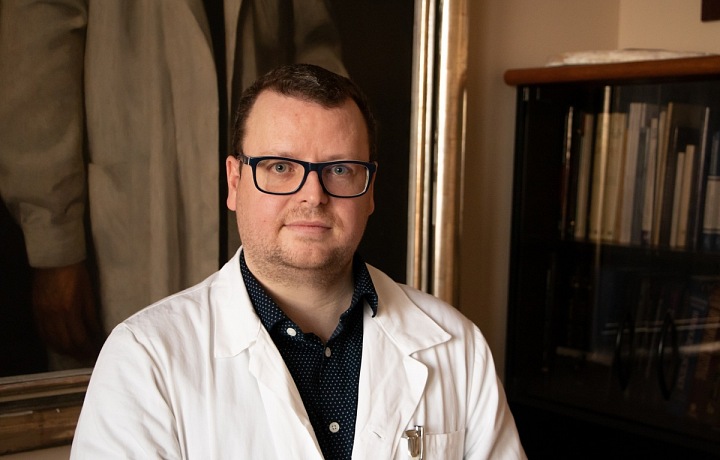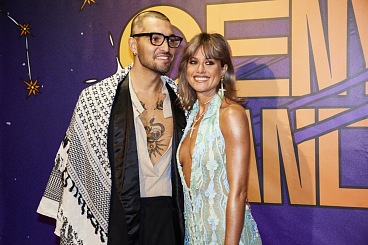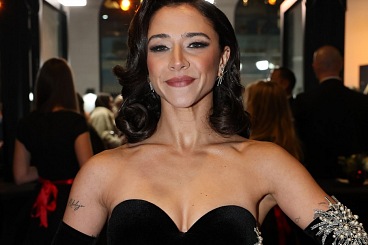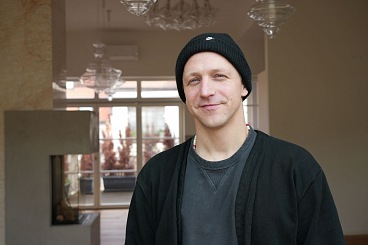Fast Confession - HC Rytíři Kladno team doctor MUDr. Petr Fulín: Jaromír Jágr has an extremely developed understanding of his own body
The hockey world is not just about players and coaches. Having a doctor on the bench is just as important for any team. The Rytíři Kladno team can always rely on a seasoned expert, Associate Professor of Orthopedics from the 1st Orthopedic Clinic of the 1st Medical Faculty of Charles University and the Motol University Hospital, MUDr. Petr Fulin, PhD. In an interview with LP-Life, he spoke not only about the behind-the-scenes world of top-level players from a medical professional's point of view, but also about how he got into the field of sports medical support, and the unique, interesting and inspiring aspects of this profession. Moreover, he opened up about what all he admires about our top hockey player Jaromír Jágr and what he believes makes this player unique. Last but not least, he spoke about the most common accidents on ice, his scientific activities and how and with whom he likes to spend his free time.
How did you become the team doctor of the Kladno hockey players?
They say that the key to success is being in the right place at the right time, and that was my case, too. In short, an older colleague who worked as a doctor for another hockey team came to me with the offer that the Rytíři Kladno would like to increase the level of medical services, and they approached my colleague and me with this offer. It didn’t take long for both the players and the club management to start liking us, and after the first season, when we only had the role of medical experts for outdoor matches, we basically took over the function of team doctors with everything it entails from the next season.
Can you talk us through the process of breathing and how it is specific for world-class hockey players from a medical point of view?
Breathing is a basic life function that ensures the oxygenation of tissues. Basically, the air we breathe enters the lungs through the airways, where oxygen is absorbed into the blood and distributed to the target tissues of the whole organism by means of blood vessels. There it participates in the production of energy, in which carbon dioxide is produced and subsequently transported back to the lungs through the blood and then exhaled as a surplus product. In terms of specificity for hockey players or top-level athletes, athletes generally tend to have a larger lung capacity due to long-term training. In practice, this increases the effective performance of the respiratory system, thus they are able to deliver endurance performance better than normal individuals.
Does breathing work differently for hockey players during a match than in other competitive sports?
Breathing is always the same, though there is a certain specificity for hockey players in that hockey is a winter sport. Basically, a professional hockey player’s body warms up during maximum physical output, while the player breathes the cold air in the winter stadium. This increases the risk of catching a cold or an infectious respiratory disease.
Overall, what are the most common injuries for a top-level hockey player?
There are no official statistics, but I can safely say it is mostly facial lacerations from contact with the puck or an opponent's stick. Soft tissue contusions are common, too, especially in the thighs and wrists. Certain muscle groups may tear or strain. As for joint injuries, shoulder and knee injuries occur most frequently. Concussions and dental injuries are also quite common.
Is there a way to prevent these injuries?
Some, yes. For example, muscle tearing or distension can be prevented by muscle stretching before the match and, of course, physical fitness during summer training. Other injuries that can be prevented are, for example, dental injuries, where dental protectors and modern helmets can be used, which greatly mitigates the consequences of a head injury. On the other hand, there are injuries that are difficult to control, such as lacerations or soft tissue contusions or joint injuries sustained in a duel between two opponents.
What lung injuries do you encounter most often with hockey players and in what ways they can be treated?
As for lung injuries, I personally haven't encountered any. But one of the most common injuries is having one’s wind knocked out. Simply put, it is a spasm of the respiratory muscles caused by a blow to the chest from the ventral (front) side, the respiratory muscles are in spasm and the individual is unable to breathe at that moment. The condition is accompanied by a significant panic attack, but it is not dangerous and after a few seconds to tens of seconds, breathing naturally resumes and the spasm disappears. Other injuries I could name are contusion of the chest, which includes broken ribs in extreme cases. In principle, this injury is treated by resting, which is usually supported with some analgesic, anti-inflammatory and rehabilitation treatments.
Can a hockey player's lungs rupture during a match?
Although it may look that way when the players return to the bench, I really don’t think so. It also depends on your definition of a ruptured lung. As a result of a trauma, it can happen that the lung membrane ruptures and pneumothorax can develop, which is characterized by the collapse of one lung. Regarding lung tissue rupture, this can occur in high-energy injuries. But I have not seen any of these cases in practice, nor have I heard of anyone who has.
In the last two years, especially in 2021, we have witnessed tragic accidents in very young athletes, be they football players or motorcyclists. How do you feel about it? How is it possible that younger and younger people are dying? Can it be related to overtraining?
I feel this question needs to be divided into two answers. In the case of young football players or athletes, it really can be related to maximum physical performance. Usually, there are some undetected birth defects in the background, which is why the sports federation is doing everything that’s in its power to ensure that professional athletes are properly examined. They have their stress ECG recorded in advance - or echocardiography in case of a previous diagnosis - but it can still happen. When it comes to tragic accidents of young bikers, you are right, the numbers are rising tremendously fast. I think it’s a consequence of the era we live in, because today’s machines are faster and more powerful, and racers are held on higher standards than before, which leads to increasingly more serious high-energy accidents. Those can have permanent consequences, or even result in fatal damage to health in the form of death.
Is there a difference in the orthopedist's approach to a professional athlete and to an "ordinary" patient, and if so, in what respect?
I have to admit there is indeed a difference. Let’s consider a situation, where the hockey player is about to play in the playoffs or in the World Championship finals, and at that moment the stakes are really high. His career, his future, the ability to financially support his family, a lucrative job offer. In this case, of course, we can work out a solution with the player and the implementation team, depending on the severity of his medical condition. We can, for example, prescribe analgesics, give him an injection or temporarily fix a small fracture with a splint and leave the actual treatment for after the performance. However, there are many cases where we can treat athletes the way we treat "normal people" and put the player's health first. We have to keep in mind that the player may be young now, but he will need his health later in life, too. In other words, if the situation allows, we definitely prefer the "lege artis" approach, i.e. doing the best for one’s health, rather than focusing on an upcoming performance.
Is there anything specific about Jaromír Jágr in terms of health?
Jarda is specific in several respects. From a health point of view, he is clearly exceptional in that he has an extremely developed understanding of his own body. He knows perfectly well what he has to train repeatedly, what he can train less, or not at all. In the case of minor injuries, he knows when he can afford to play through the pain, because there will be no serious consequences, as well as where the limit is where things could get worse and the injury could eliminate him for a long time. It needs to be said that he’s not very fond of doctors, he trusts his own body and the natural healing process, and we agree with that. But his character plays a huge role as well. His psyché is completely unique and that reflects in his will, diligence and motivation, even at his age. It is unbelievable what he can sacrifice for hockey, and we’re not talking only about the physical side of it, the extremely hard work, but also about the mental strain it involves. And this applies to financial resources, too. I believe that without him, extra-league hockey would no longer exist in Kladno.
Have you personally experienced any dramatic situations during a hockey game?
Unfortunately, yes. Let’s focus on the area of health, because there are all kinds of dramatic situations in hockey. I must say that I admire the coaches and their mental endurance. I had to resuscitate a fan at the Kladno stadium twice, fortunately, in both cases, we managed to pass them on to the emergency service in a stable condition. As far as hockey players are concerned, there are two situations I can recall. The first is a respiratory arrest caused by a swallowed tongue and unconsciousness caused by the player colliding with the wall, which was a very dramatic situation that we managed to successfully resolve. The second thing is a puck to the face after, when the blow caused a shattered fracture of the nose, basically tearing off almost two-thirds of the circumference of the nose. Even though it did take some time, we managed to perform a very successful reconstruction. Martin Kehar looks even better now than before, if I may say so myself...
What do you do outside of hockey?
My main professional activity is working here at the 1st Orthopedic Clinic of the 1st Faculty of Medicine, Charles University and the University Hospital in Motol, where my daily program is large joint replacement surgery. Among other things, I participate in the teaching of medical students and postgraduate students at the 1st Faculty of Medicine, Charles University, and it needs to be mentioned that I am also engaged in scientific activities, where we have collected a number of awards for our work. Together with Professor Pokorný, we are invested in increasing the service life of joint replacements in cooperation with the Department of Human Biomechanics at the Czech Technical University and the Institute of Macromolecular Chemistry of the Academy of Sciences of the Czech Republic. Apart from work, which is my main hobby, what fulfils me most is my family and in my free time, I like to play golf.
What do you think is the recipe for success in top-level sports?
It depends on a number of factors that individually may not be decisive. The athlete should definitely follow the principles of a healthy lifestyle. They should have a mentally stable personality and a good family support system. In particular, it is necessary for the athlete to enjoy the sport so much that they are willing to make practically any kind of sacrifice. But the fundamental elements of success are hard work and motivation, without which it’s impossible to achieve success in any human activity.























